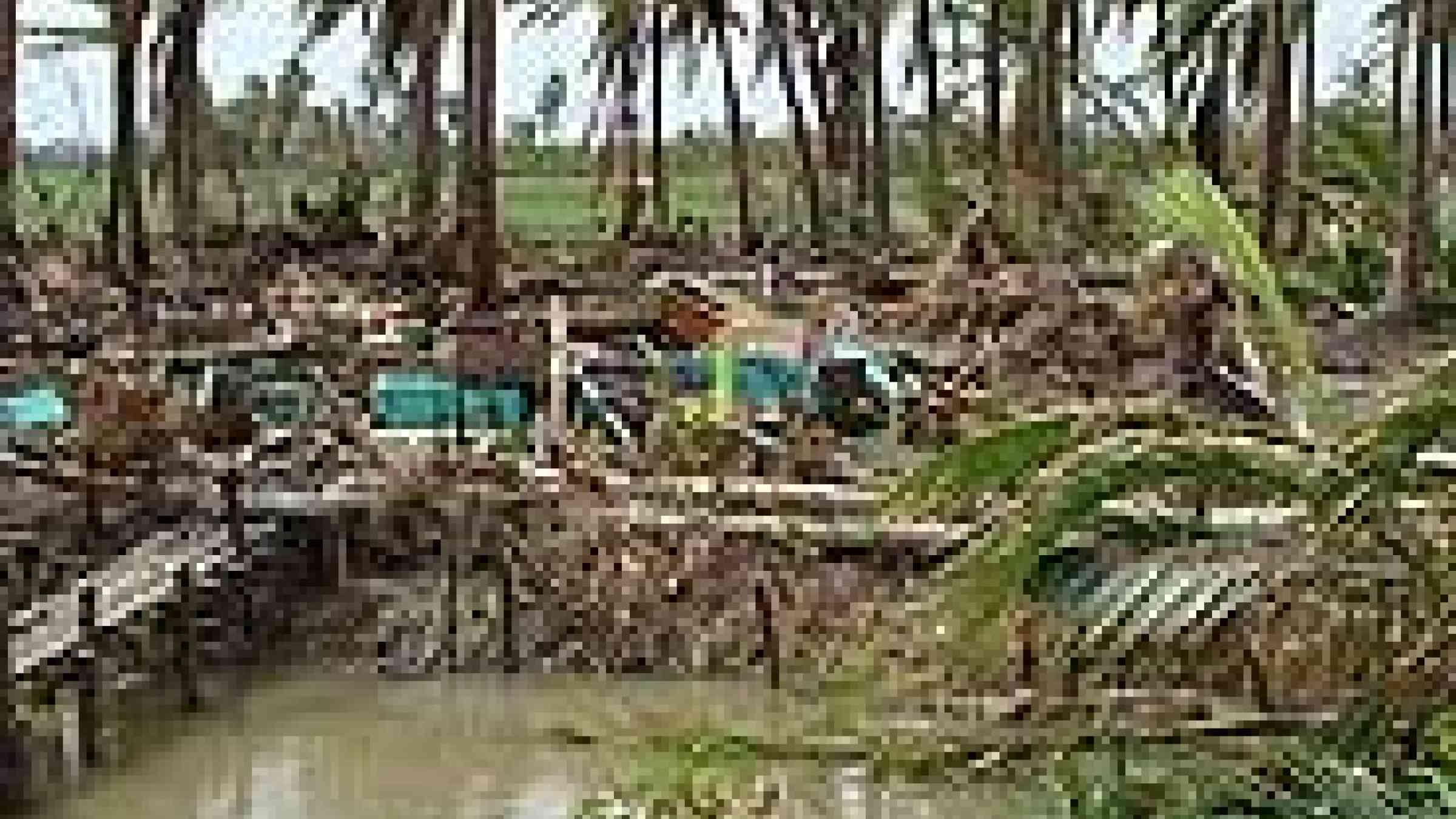Manila: 'Statement of Action' announced at global meeting on climate change and disaster risk reduction

Press release - Manila Call for Action commits to policy changes and enabling environment for linking DRR and climate change
Parliamentarians present during the first ever consultative meeting on climate change voiced their approval on the immediate need to mainstream disaster risk reduction (DRR) and climate change adaptation (CCA) today, October 18, 2008 at the Makati Shangri-La Hotel.
The "The Manila Call for Action of Parliamentarians on Disaster Risk Reduction and Climate Change Adaptation"" embodied the statement of action by parliamentarians who participated in the global meeting. It seeks to call on the governments of every nation to make DRR the first line of defense in responding to the impacts of climate change.
According to the statement, the solons have committed to advocating "policy changes to advance climate change adaptation and create the political space and technical enabling environment to establish a cooperative and mutually beneficial relationship between DRR and climate change adaptation."
Senator Loren Legarda, the consultative meeting's Co-Convenor, together with the UNISDR Secretariat in collaboration with Global Legislators Organization for a Balanced Environment (GLOBE) International, said that it is imperative for parliamentarians to take the lead in creating a policy and institutional environment that is conducive for promoting multi-stakeholder collaboration at all levels.
"It's clear from our discussions that involvement of all sectors, government agencies and civil society will be critical in the implementation of disaster risk reduction and climate change adaptation as climate change and climate related disasters variedly affects the highly interconnected components of the human and natural systems," Senator Legarda said.
She added that legislators who are in the forefront of policy formulation have vital roles to play by facilitating, through policy actions, how institutions can transform into ones that readily motivate various stakeholders to get involved and meaningfully participate in disaster risk reduction and climate change adaptation.
During the conference, it was pointed out that 70% of the total disasters worldwide are climate related, making the integration of DRR into the CCA agenda all the more essential. The parliamentarians added that doing this would reduce the underlying vulnerability of communities, build capacity in responding to climate related risks, minimize damage, and enhance each one's ability to recover from disasters.
The Manila Call for Action likewise urges nations to shift its response mechanism to disasters of merely "reacting as it happens" into a more pro-active posture characterized by a comprehensive strategy as strongly advocated by the United Nations International Strategy for Disaster Reduction (UNISDR) since 2005.
This pro-active stand, as well as preventive strategies needed to decrease human vulnerability to disaster and climate change (especially of the poor and with particular attention to women) to safeguard human security, promote sustainable development, and alleviate poverty have been given utmost importance during the conference.
The Manila Call for Action is also urging the Inter-Parliamentary Union (IPU) and the United Nations (UN) to work together in developing and elaborating an international legal framework to secure synergy between DRR and climate change adaptation; calling on the international community to provide more resources for DRR and climate change adaptation; and national governments to ensure better use of existing resources by making disaster risk reduction a tool for climate change.
Aside from these, the assembly is seeking to promote the Hyogo Framework for Action (HFA) ?a global blueprint for disaster risk reduction efforts with the goal of substantially reducing disaster losses by 2015? as an indispensable guide for political and technical assessment of goals and priorities for DRR, and a key guide for climate adaptation action.
Another feature of the conference was the work done by Globe Europe and Globe EU in building an advocacy among 1,500 parliamentarians from 27 EU Member States for DRR and Climate Change. With Globe intervention, the proposed EU Climate and Energy package and ambitious target for Copenhagen is to "Cut CO2 emissions by 20% by the year 2020, with a 20% share of renewable energy sources."
In order to accomplish all of these, the parliamentarians agreed that the lack of understanding, inadequate government allocation, weak or lack of integration of DRR into the agenda of most development sectors and inadequate recognition of DRR as a tool for CCA have to be hurdled. They have also guaranteed to deliver statements into their respective parliaments by reporting on the outcome of the Manila Consultative Meeting as well as propose legislation to mandate the mainstreaming of gender-sensitive disaster risk reduction in national and regional development plans.
"The growing losses people and societies sustain from various disasters due to rising disaster risks and vulnerability are only likely to increase if we fail to take decisive actions now, collectively and individually," Senator Legarda stressed. "To be effective, such actions to a large extent will essentially involve the marriage of disaster risk reduction (DRR) and climate change adaptation (CCA) strategies carefully woven into sustainable development agenda."
Parliamentarians who participated in the "Roundtable Consultative Meeting for Parliamentarians: Making Disaster Risk Reduction A Tool For Climate Change Adaptation" include: Hon. Saumura Tioulong, National Assembly of the Kingdom of Cambodia; Hon. Xu Jianmin, National People's Congress of China; Hon. Patricia Romero Barrientos, Legislative Assembly of the Republic of Costa Rica; Hon. Kwame Ampofo, Parliament of the Republic of Ghana; Hon. Loren B. Legarda, Senate of the Republic of the Philippines; Hon. Emmanuel Dombo, Parliament of the Republic of Uganda; Hon. Bernard Mulegani, East African Legislative Assembly; Hon. Jung Sook Kim, former parliament member and Minister of South Korea, President of CAPWIP; Hon. Doeke Eismas, Netherlands and former member of the European Parliament; Hon Salvano Briceño, Director UNISDR; and Hon. Hussni Moh Alsheyab, Parliament of Jordan.